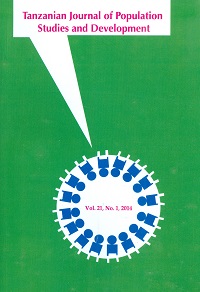The Role of Women in Re-Orienting Mangrove-Based Practices Into Praxis in the Eastern Coast of Tanzania
Abstract
Women are currently assuming a leading role in shaping mangrove-based management practices, as opposed to a historical tradition of men serving as the main actors. This paradigmatic shift is believed to be a result of change-oriented learning programmes implemented through the Integrated Coastal Management (ICM) approach, adopted in the mid-1990s. This article employs the concept of ' power ' from the critical realism theory, and compliments it with the concept of ' capability ' from the capability approach, to communicate key findings that ' change-oriented learning ' can potentially foster agentive power. This power is necessary for creativity and reflexivity among women, and may also maximize their ecological-restorative potentials, a condition that is required for re-orienting mangrove-based practices into praxis. The paper is enriched by analysed primary data collected between 2007 and 2017 along the Dar es Salaam and Mkinga coastal sites of Tanzania, and is also supplemented with secondary data sources. This work affirms that the re-orientation of ecological practices into praxis requires a combination of enabling conditions, including exposure to different forms of learning.
Keywords: re-orientation, practice, praxis, capability, power, change-oriented learning, integrated coastal management, ecological restorative capacity.


